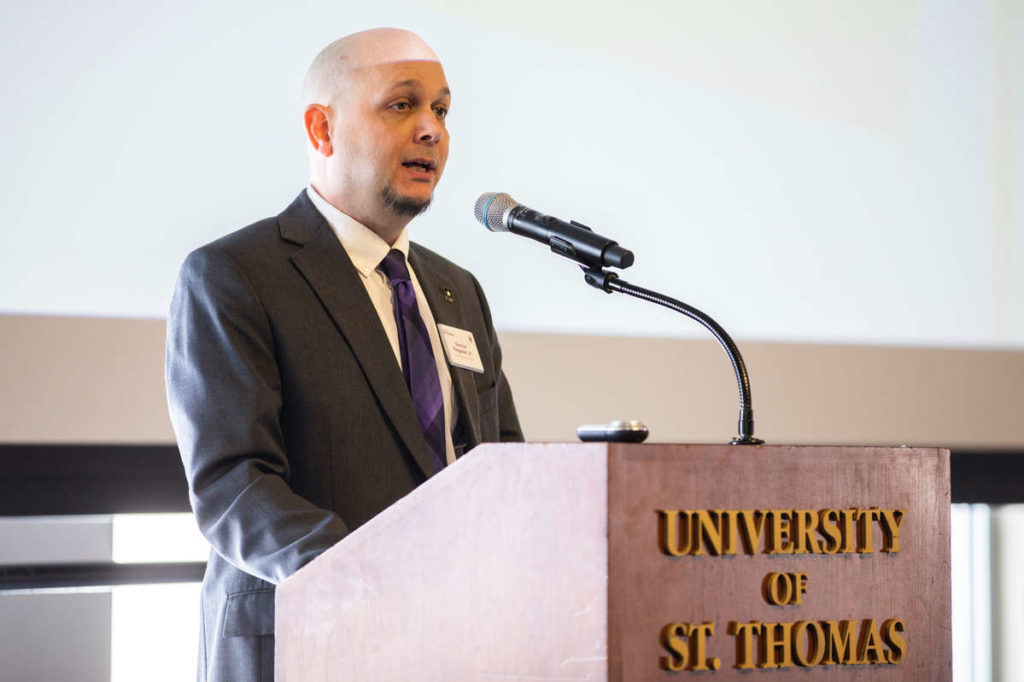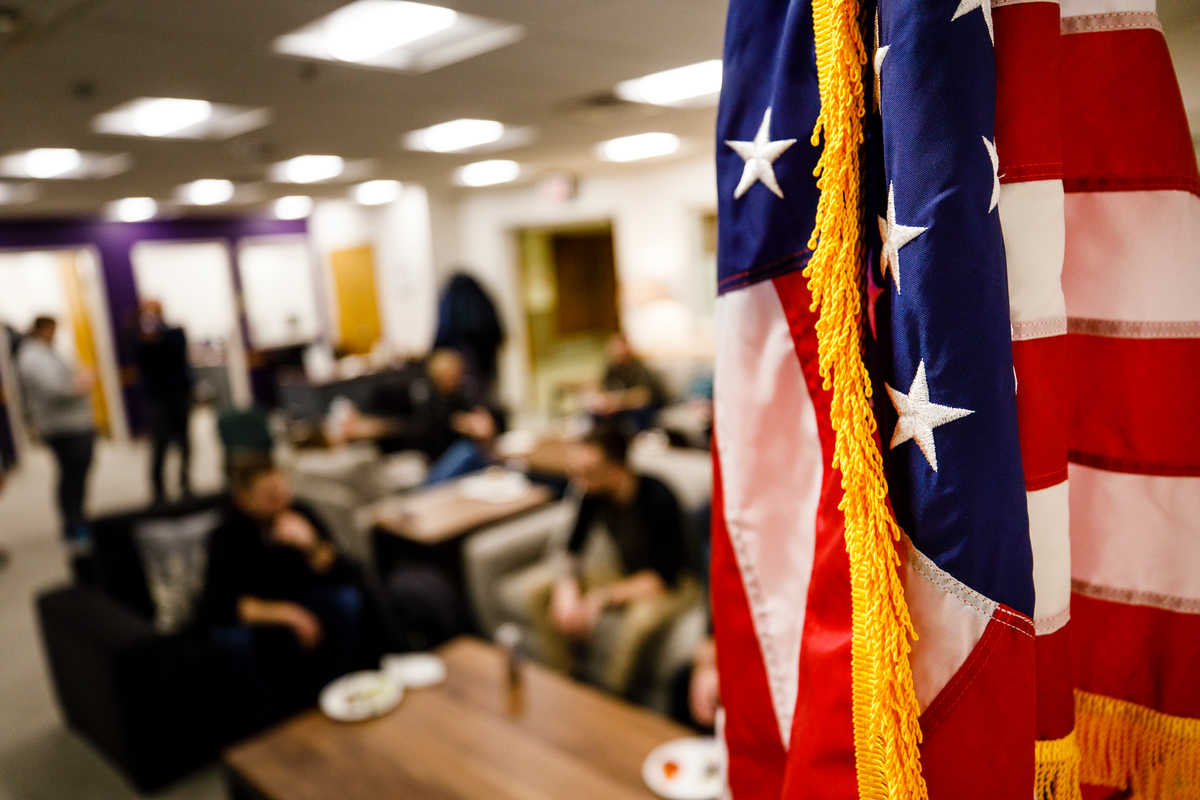Veterans from all eras are reacting to the events in Afghanistan, such as the U.S withdrawal and the takeover by the Taliban. Veterans may question the meaning of their service or whether it was worth the sacrifices they made. According to Veterans Affairs, veterans may even feel more moral distress about experiences they had during their service.
“It’s normal to feel this way,” the department states on its website. The VA, which has resources on its site, advises veterans to seek support in a variety of ways. “Talk with your friends and families, reach out to battle buddies, connect with a peer-to-peer network, or sign up for mental health services.”
St. Thomas has won numerous awards on its mission to become the most veteran-friendly campus in the Upper Midwest. It received the Military Friendly School designation and was named to U.S. News & World Report’s Best Colleges for Veterans. As the recent U.S. withdrawal from Afghanistan could have an impact on the mental health of veterans from all eras, the Newsroom connected with St. Thomas’ Director of Veterans Services Norman Ferguson, Jr., MFA, for insights into how St. Thomas community members can show support and approach discussing the events in Afghanistan with veterans and others with military ties.
Ferguson recommends to stop, look and listen.

“This is advice given to people to be cautious when crossing a street. It is also a reminder to be careful when approaching a possibly sensitive situation,” said Ferguson. “When speaking with those who may have served overseas in the Middle East, stop, look and listen may be the best way for us to approach such a fragile subject.”
He adds, “The events occurring in Afghanistan the past weeks are jarring. It is a situation affecting everyone. None more so than for those persons who spent time in that country in service to the U.S. These brave individuals could be affected viscerally: mentally, emotionally and personally. How we broach such a subject is a matter of tact, sensitivity and care.”
Here are the steps Ferguson suggests:
STOP. If we decide to ask a veteran how they are feeling during this time, then stop. Take the time to halt and ask. Remember this is something which is personal, and inquiring about it takes a moment.
LOOK. Whether literally, or figuratively, look at the individual. Make a connection that is more than a passing glance. Let them know we care about them and what they are going through during this time.
LISTEN. Finally, listen. We have taken the step to engage. It is now our turn to listen. Listening can be hard, especially if we are thinking of a retort. Sometimes, it is just enough to listen without the onus of coming up with a solution, or trying to find something to say in response, or reaching a conclusion. Listen without judgment. Just being there for someone may be enough for anyone to get through a tough situation. Our ability to make ourselves available to another person is powerful and a statement of how much we care. All of us are in this together. It is important for others to know that they are not alone.
Veterans Affairs has provided information and resources on what is available to veterans during this time:
- Veterans Crisis Line – If you are having thoughts of suicide, call (800) 273-8255, then press 1 or visit veteranscrisisline.net.
- For emergency mental health care, you can also go directly to your local VA medical center 24/7 regardless of your discharge status or enrollment in other VA health care.
- Vet Centers – Discuss how you feel with other veterans in these community-based counseling centers. 70% of Vet Center staff are veterans. Call (877) 927-8387 or find one near you.
- Maketheconnection.net – information, resources and veteran-to-veteran videos for challenging life events and experiences with mental health issues
- VA Women Veterans Call Center – Call or text (855) 829-6636 (M-F 8 a.m.-10 p.m. and Saturdays 8 a.m.-6:30 p.m. Eastern Time)
- VA Caregiver Support Line – Call (855) 260-3274 (M-F 8 a.m.-10 p.m. and Saturdays 8 a.m.-5 p.m. Eastern Time)







